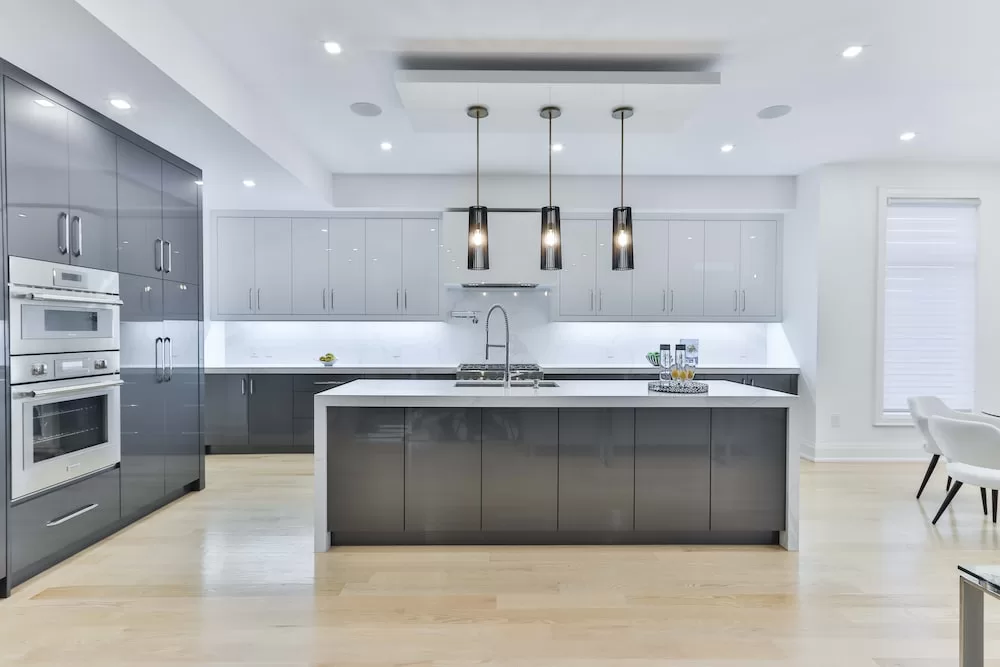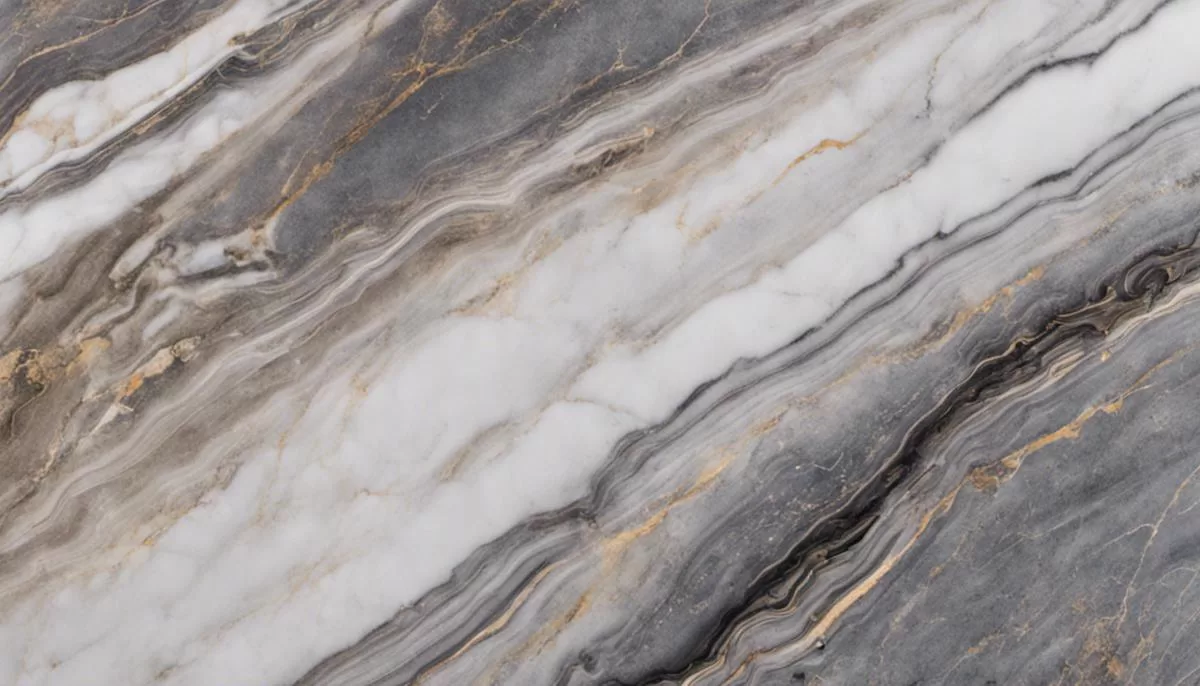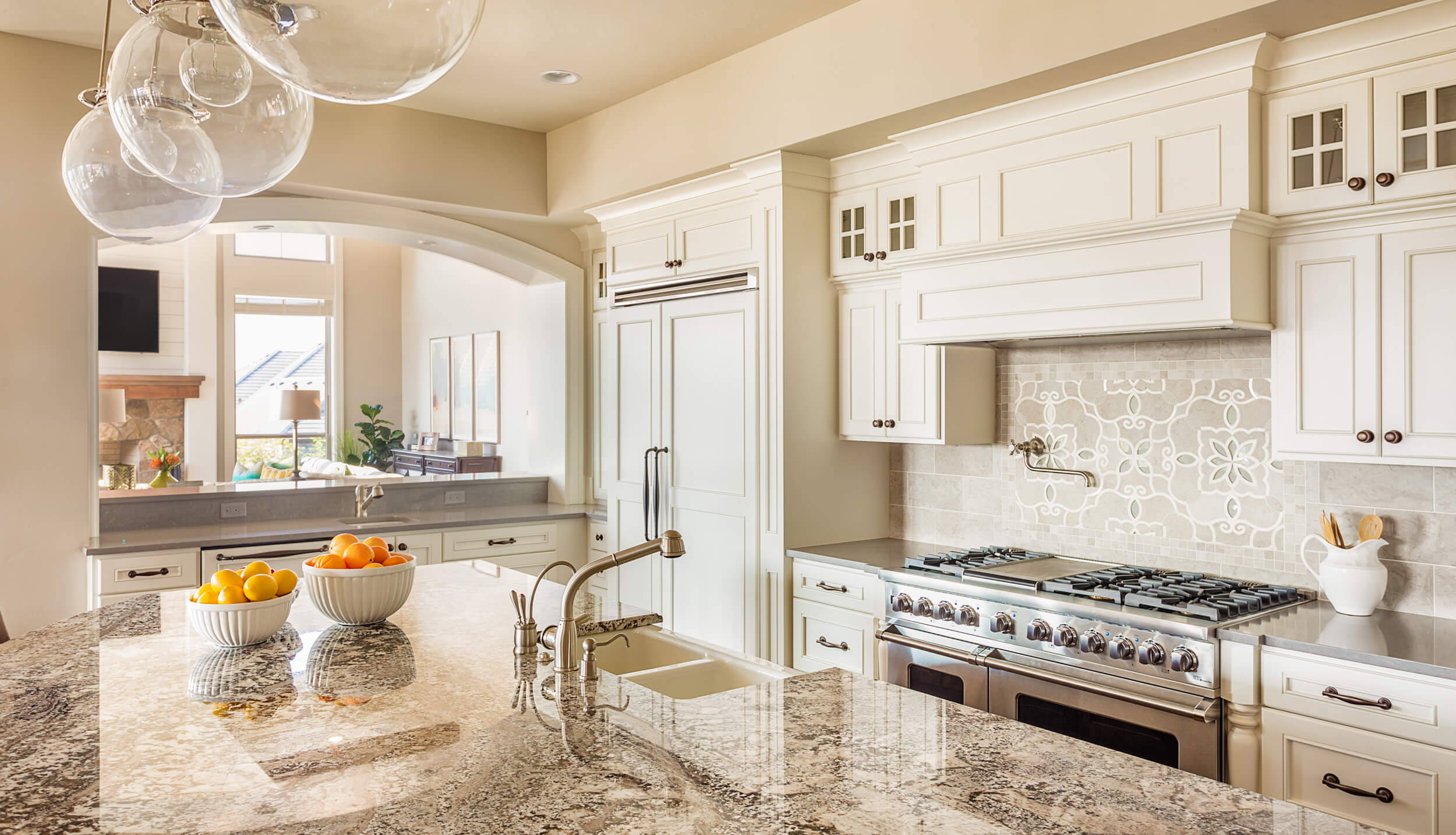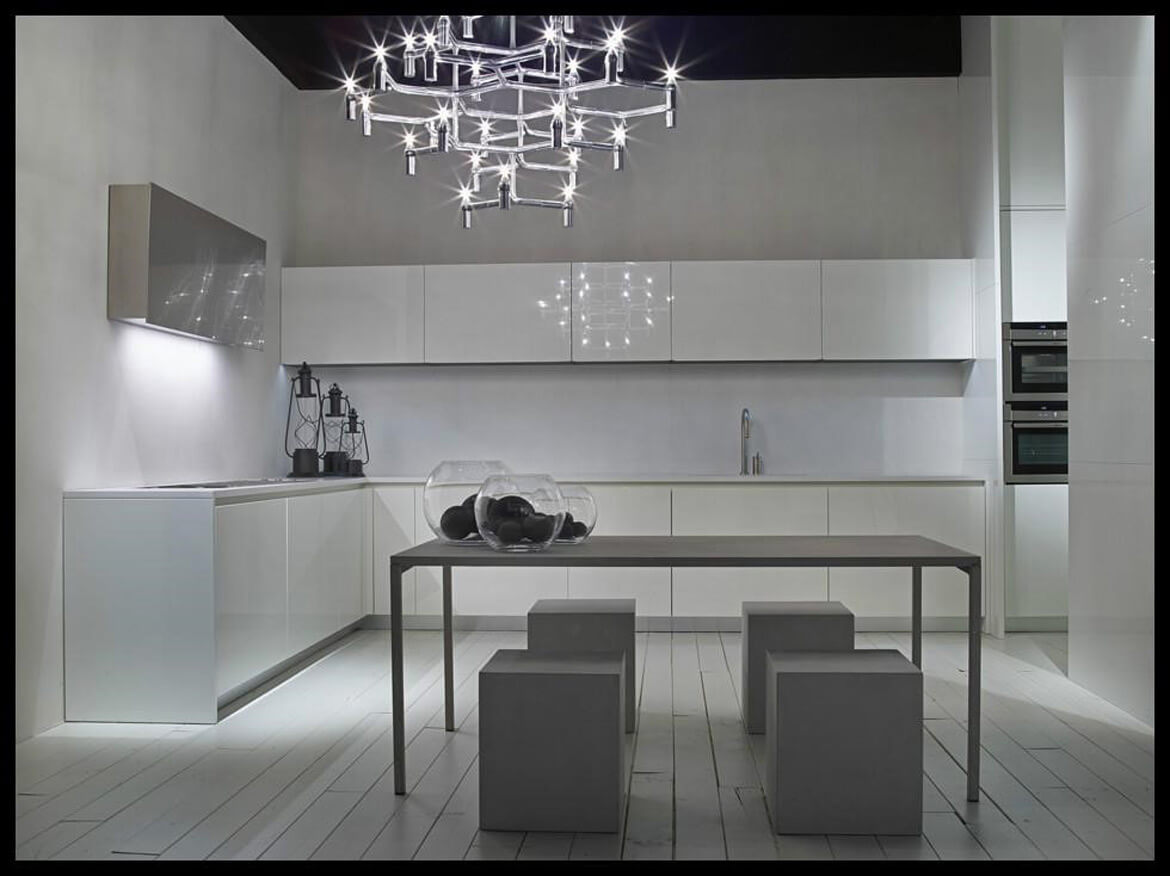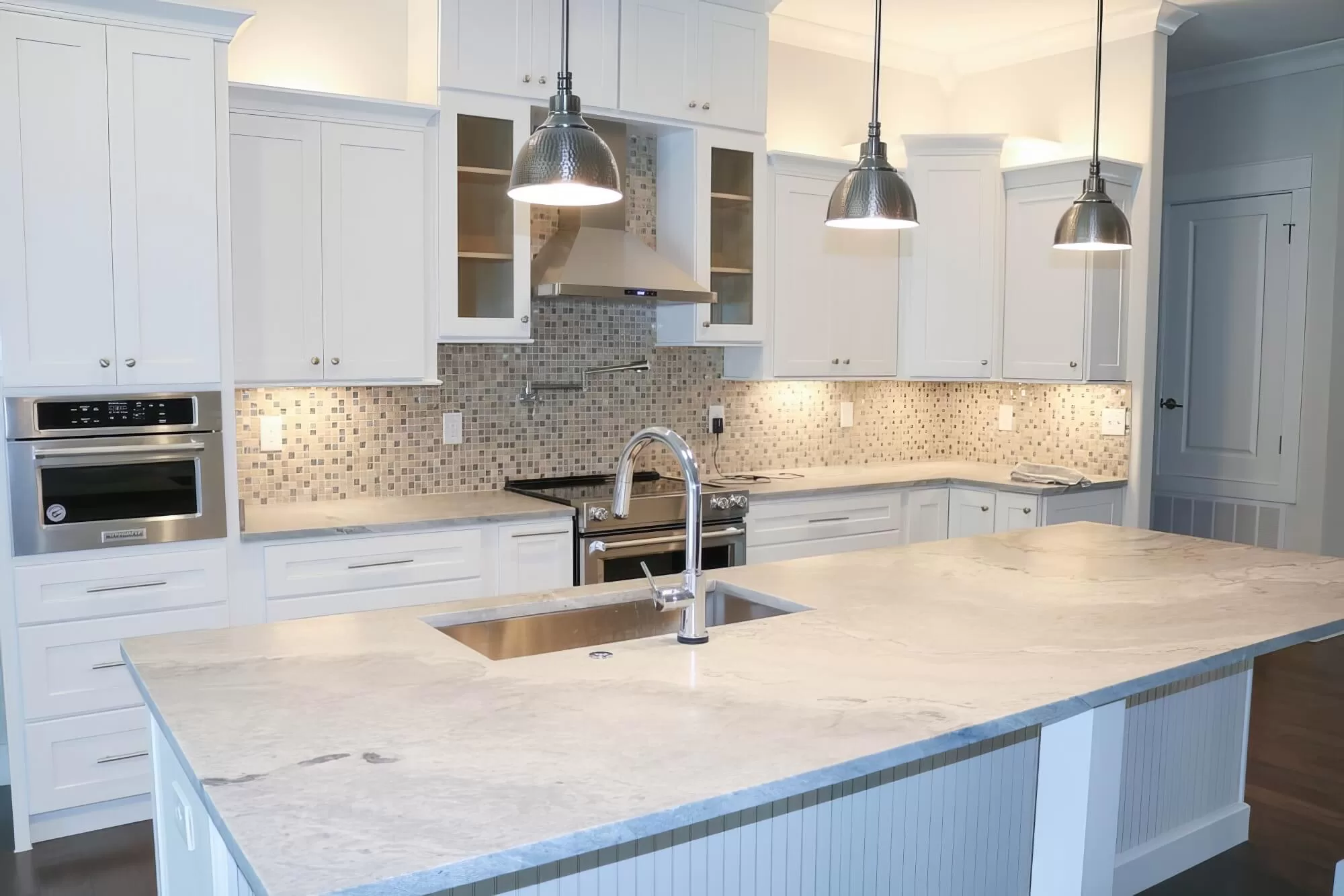
Everything You Need to Know About Quartz Countertops | The Ultimate Guide
Quartz kitchen countertops, a fusion of nature’s beauty and human ingenuity, have surged in popularity in the past few years. Their irresistible allure stems from the versatility, durability, and low-maintenance attributes they offer. This comprehensive guide to quartz kitchen countertops delves into their unique attributes, cost implications, care needs, and installation process.
1. Composition of Quartz Countertops: A Blend of Nature and Technology
Quartz countertops, contrary to common belief, are not naturally formed slabs. They are engineered from crushed quartz crystals in combination with pigments and resin. This manufacturing process allows for the creation of a vast array of colors and patterns, mirroring the natural beauty of stone.
The blend typically contains about 90-94% quartz and 6-10% resin. This composition results in a non-porous surface that resists scratches, stains, and germs, making it a perfect choice for busy and messy kitchens.
2. Color Options: A Palette of Possibilities
One of the standout advantages of quartz countertops is their availability in a multitude of color options. The pigment added during the manufacturing process gives quartz the ability to imitate the appearance of natural stone or to embrace a unique aesthetic with colors not typically found in nature.
The color uniformity of quartz also simplifies the matching process during installation, as the patterns and colors are consistent throughout the material. However, keep in mind that styles with large quartz granules might create a busy look on your countertops.
3. Durability: The Mark of Resilience
Quartz kitchen countertops are lauded for their exceptional durability. They are resistant to most kitchen perils such as heat, impact, and scratches.
The resin binder in quartz imparts a degree of flexibility to the material, making it less prone to cracking. However, despite their scorch-resistant nature, it’s advisable to use a trivet or protective pad when placing hot pots or pans on the countertop to avoid potential damage caused by extreme heat.
4. Care and Maintenance: Easy and Effortless
Engineered quartz kitchen countertops are practically maintenance-free. Unlike natural stone countertops, which require sealing and resealing, quartz countertops need only regular cleaning to keep them in top shape.
For routine cleaning, a mild soap or an all-purpose cleaner, along with a non-abrasive cleaning pad or cloth, will suffice. Stains can be tackled with a glass cleaner and a non-abrasive sponge. For disinfection and enhancing shine, a solution of equal parts rubbing alcohol and water is recommended.
5. Resistance to Stains and Germs: A Hygienic Choice
The non-porous nature of quartz countertops prevents the absorption of liquids, thereby effectively resisting stains. This quality also inhibits the growth of bacteria and mold, making these countertops a hygienic choice for your kitchen.
However, not all quartz countertops offer the same level of stain resistance. It’s advisable to test the sample with common staining agents like coffee, oil, and red wine before making a final decision.
6. Cost of Quartz Kitchen Countertops: Investment for the Long Run
The cost of quartz countertops can vary significantly, depending on the quality of the stone, the complexity of the installation, and the brand you choose. On average, quartz countertops can range between $75 and $200 per square foot.
High-end options may exceed this range. Also, additional costs may incur for repairing chipped edges or corners, as these fixes are best handled by professionals. Despite the initial cost, the durability and low maintenance of quartz countertops make them a worthwhile investment for the long run.
7. Installation: A Task for Professionals
Due to their weight and the intricacy involved in the installation process, it’s recommended to hire professionals to install quartz countertops. The installation cost can vary based on the number of cut-outs, seams, and edge details needed.
Moreover, professional installation ensures that the countertops are properly installed, preventing potential damages and enhancing the longevity of the countertops.
8. Environmental Impact: Eco-Friendly Choice
Quartz countertops are an eco-friendly choice for your kitchen. The manufacturing process often involves the use of waste products from other countertop materials, which would otherwise end up in landfills.
Moreover, the durability and long lifespan of quartz countertops minimize the need for replacement, reducing the environmental impact over time.
9. Limitations of Quartz Countertops: Be Aware
While quartz countertops are an excellent choice for indoor environments, they may not fare well in outdoor settings. Prolonged exposure to outdoor elements like sun, wind, and rain can cause the material to warp and crack.
Furthermore, the colors of quartz countertops can fade over time when exposed to sunlight. Therefore, it’s best to reserve these beautiful surfaces for indoor use.
10. Quartz vs. Granite: A Comparative Outlook
When considering quartz countertops, it’s inevitable to make a comparison with their natural stone counterpart – granite. Both materials are highly durable, but there are some key differences.
Granite is 100% natural and tends to be porous, which necessitates regular sealing to prevent staining. On the other hand, quartz countertops, being engineered, are non-porous and stain-resistant.
While quartz offers resistance to chips and cracks, granite can chip more easily when struck with heavy objects. However, quartz countertops are not as heat-resistant as granite, meaning hot pans or pots should not be placed directly on them.
In terms of environmental impact, granite, being a natural product, is slightly more eco-friendly than quartz. However, the longevity and durability of both materials make them ‘green’ choices for your kitchen.
Ultimately, the choice between quartz and granite will depend on your specific needs, preferences, and budget.
Conclusion
Quartz kitchen countertops, with their blend of beauty and practicality, offer an enticing choice for homeowners. Their vast color options, durability, low maintenance, and eco-friendly attributes make them a worthy contender in the realm of kitchen countertop materials.
While the cost and installation process may require a significant upfront investment, the long-term benefits of quartz countertops make them a worthwhile addition to any kitchen.
Remember, every remodeling project is unique, and the best choices are those that meet your specific needs and preferences.



